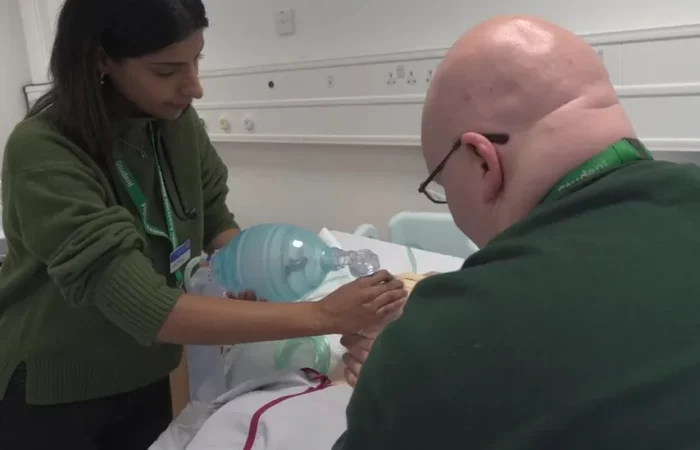A new MRI scanner has been installed at Shropshire’s first Community Diagnostic Centre (CDC) in…

Why Covid is still flooring some people
By James Gallagher
Inside Health presenter, BBC Radio 4
What is it like to catch Covid now? It is a question I have been pondering since a friend was surprised by how roughed up they were by it. Their third bout of Covid was significantly worse than the previous time they caught it.
“I thought every time you catch an illness it’s supposed to be a bit better each time?” was the message from his sickbed.
That has certainly been said a lot during the pandemic. But I also know work colleagues and people I have interviewed or chatted to at the school gates, who have been hit hard by Covid in the past few months.
A familiar tale has been a week of coughing, headaches or fever followed by a lingering fatigue.
It is important to stress that Covid has always caused a wide range of symptoms. Even before vaccines, some lucky people barely got sick or did not even develop symptoms.
For some of us, Covid is just a sniffle – not even enough to make you go digging around in the bathroom cabinet to see if there is a lateral flow test hiding in there.
But scientists specialising in our immune system warn Covid is still causing stonking infections that may be worse than before and knock us out for weeks.
So what is going on?
How we fare after being exposed to Covid comes down to the battle between the virus itself and our body’s defences.
The earliest stages are crucial as they dictate how much of a foothold the virus gets inside our body, and how severe it is going to be.
However, waning immunity and the virus evolving are tipping the scales.
‘Feel pretty rough’
Prof Eleanor Riley, an immunologist at the University of Edinburgh, has had her own “horrid” bout of Covid that was “much worse” than expected.
She told me: “People’s antibody levels against Covid are probably as low now as they have been since the vaccine was first introduced.”
Antibodies are like microscopic missiles that stick to the surface of the virus and stop it from infecting our body’s cells.
So, if you have lots of antibodies, they can mop up the virus quickly and any infection will hopefully be short and mild.
“Now, because antibodies are lower, a higher dose [of the virus] is getting through and causing a more severe bout of disease,” Prof Riley says.
Antibody levels are relatively low because it has been a long time since many of us were vaccinated (if you are young and healthy you were only ever offered two doses and a booster) or infected, which also tops up immunity.
Prof Peter Openshaw, from Imperial College London, told me: “The thing that made the huge difference before was the very wide and fast rollout of vaccines – even young adults managed to get vaccinated, and that made an absolutely huge difference.”




This Post Has 0 Comments